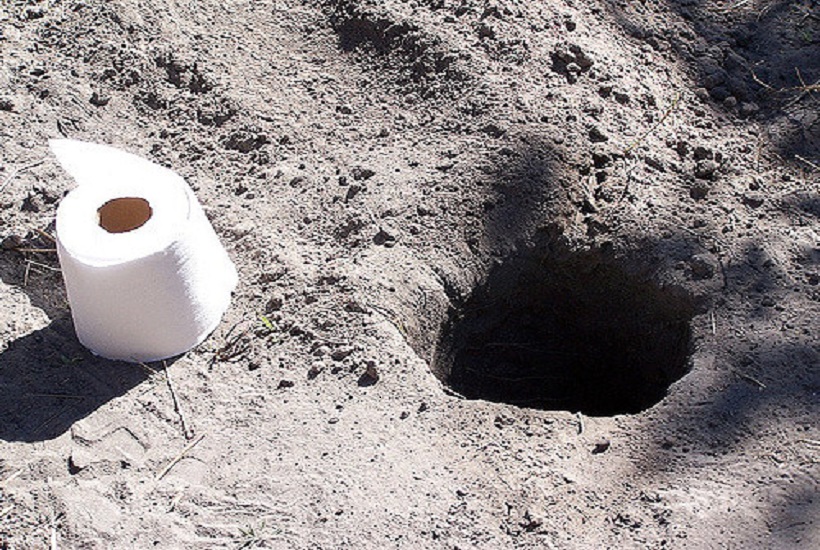Whenever I object to the government banning plastic bags or tripling my electricity bill, I’m always asked, ‘Why do you hate the environment?’ The truth is: I don’t. What I do hate is environmentalism. I hate its eco-austerity, its quasi-religious demands for penance and its anti-human rejection of progress. I love the environment, its eco-diversity, clean air and its beauty. What I’m not prepared to do is give up on human progress and economic development for some vision of an environmental nirvana.
Last year, I travelled to Sydney for the Australian Libertarian Society Friedman Conference. After my Airbnb cancelled last minute I found myself in ‘Sydney’s sustainability house’. The Ultimo terrace house was completely off the grid, it generated its own solar electricity and stored it in batteries. The house used rainwater that my host informed me was cleaner than Sydney’s tap water. He told me that I was welcome to flush the toilet, but he chose to use water from a bucket he kept in the shower instead.
To say the amenities were basic is an understatement. The shower was cold and the lighting in my room was extremely dim. The experience reminded me of my trip tracking through the mountains of Nepal with its shack-like guesthouses. To my host’s credit, he was practising what he preached and was living the eco-austerity lifestyle demanded by environmentalism. I suspect most of Australia’s 24 million inhabitants are unwilling to do the same; even those who claim to support environmentalism.
My experience in Sydney contrasted starkly with environmentalism’s propaganda. On YouTube, I follow a British environmental technology channel, ‘Fully charged.’ The show’s focus is to test new technologies that allow environmentalists to go off the grid. One episode focused on a home that generated solar energy that was stored in Tesla batteries. The stored energy was used both to provide electricity to the home and charge an electric vehicle. While impressive, at no point in the show did it ever focus on the practicality of investing the best part of $100k to achieve what fossil fuels make affordable to even the poorest households.
What’s entirely absent from the policy discussion of environmentalists is any acknowledgement of their class privilege. Much of the cost of environmental policies falls on the poorest households. The poor subsidise the solar panels of the rich through their ever increasing electricity bills. When government mandates higher environmental standards it’s the poor who are disproportionately harmed by higher prices. It’s the poor who are harmed by the banning of plastic shopping bags being forced to buy expensive ‘green’ bags. The rich get to feel virtuous while the poor get higher prices.
Growing up in Queensland one of the most significant benefits of economic growth and globalisation was the increasing affordability of home air conditioning. Despite Willis Carrier inventing the modern air conditioner in 1902, until the 1990s few work class homes enjoyed such a luxury. I still have memories of being stuck in sweltering school classrooms while ceiling fans mockingly blew hot air down on us. Now many homes have air conditioning installed but the poorest homes can’t afford to turn it on due to rapidly increasing electricity prices.
Nowhere is the environmentalist rejection of human progress more apparent than in the case of coal. Carbon emissions can be reduced through improved energy efficiency, replacing old coal power stations with newer less emitting coal-powered technologies, nuclear power and via using renewables strategically to meet peak demand. Instead, the environmentalists demand the replacement of all coal power stations with expensive unreliable renewables.
The obsession with abolishing coal has resulted in increased energy prices, the de-industrialisation of Australia and less reliability in the energy supply. The effect of these policies was seen in South Australia after the Playford B power station was mothballed leaving the state at the mercy of wind power. Predictably South Australia experienced blackouts and higher energy prices. The state soon announced a $550 million energy package that included the purchase of the world’s biggest lithium battery farm from Tesla and the building of a new gas power plant. One must wonder how much cheaper a more rational attitude towards coal would have been.
One doesn’t have to be an environmentalist to care about the environment or to be concerned about climate change. There’s a difference between good policy and ideology – one weighs the costs vs the benefits of any policy change; the other is driven by quasi-religious devotion to an ideology. For too long environmental policy has been driven by ideology and emotion. Australia deserves better than to have its future ruined by green ideologues. Through rational unemotional policy, Australia can have a cleaner future without destroying the economy and imposing eco-austerity on the masses.
Justin Campbell is Senior Writer at LibertyWorks.
Got something to add? Join the discussion and comment below.
Got something to add? Join the discussion and comment below.
Get 10 issues for just $10
Subscribe to The Spectator Australia today for the next 10 magazine issues, plus full online access, for just $10.


























Comments
Don't miss out
Join the conversation with other Spectator Australia readers. Subscribe to leave a comment.
SUBSCRIBEAlready a subscriber? Log in